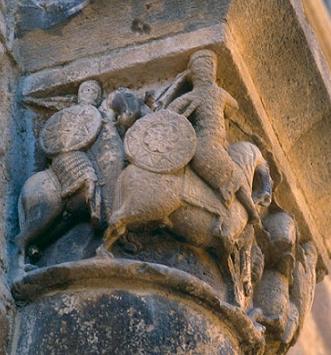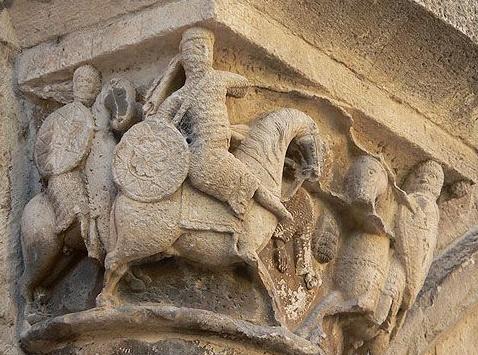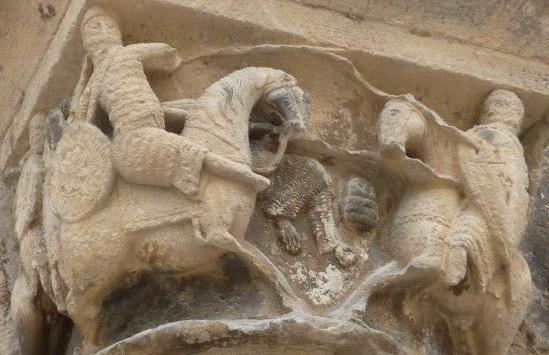
Create an Amazon Business Account

A larger image of Farragut rides to the combat Photo sources: Sobre Leyendas On the left Farragut rides to the combat. |
A larger image of Farragut estella.com.es |
 static.consumer.es |
A larger image of Farragut combats Roland Maravillas ocultas de España |
 estella.com.es On the right Farragut fights Roland in another phase of the combat |
In Estella stands the Palace of the Kings of Navarre, also known as the Palace of the Dukes of Granada de Ega. It is the only civil Romanesque building in Navarre and was declared a National Monument in 1931. It was built during the last third of the 12th century. Facing towards the church of San Pedro de la Rúa, it has a magnificent façade with two capitals featuring plants and two narrative capitals, one of which represents the battle between Roland and the giant Farragut.
The lower capital of the left-hand column is the most famous of the two narrative capitals, in which you can clearly distinguish the battle between Roland and Farragut, the former being Charlemagne's foremost knight and the latter a giant Moor.
See the positions of the capitals at ESTELLA. PALACIO DE LOS REYES DE NAVARRA
Referenced on p.152, Arms and Armour of the Crusading Era, 1050-1350, Western Europe and the Crusader States by David Nicolle
379A-B ‘Roland and Faragut’, carved capital, Castile, late 12th century
(in situ Palace of the Dukes of Granada, Estella, Spain)
Here Faragut (A) is slain by Roland's lance and is followed by a second 'Moor' (B). Their mail hauberks and coifs are typically European, with only their round shields and the cloth around Faragut's head to distinguish them as Muslims.
Referenced as figure 537 in The military technology of classical Islam by D Nicolle
537. Capital, Faragut and companion, late 12th century AD, Spanish, in situ, Palace of the Dukes of Granada, Estella (Elg).